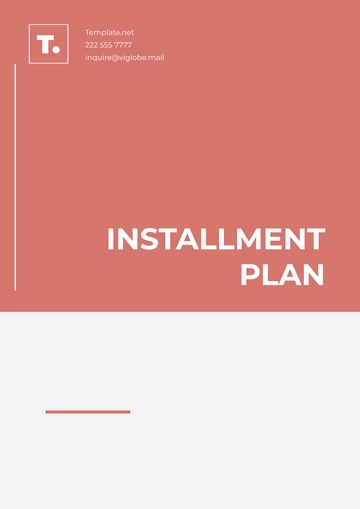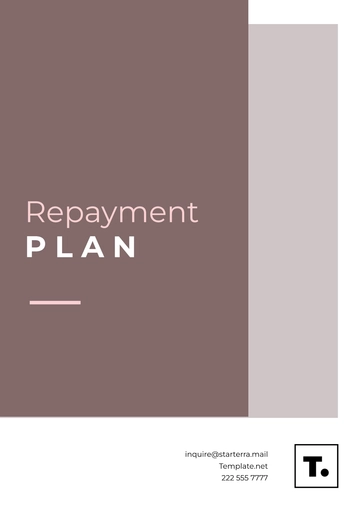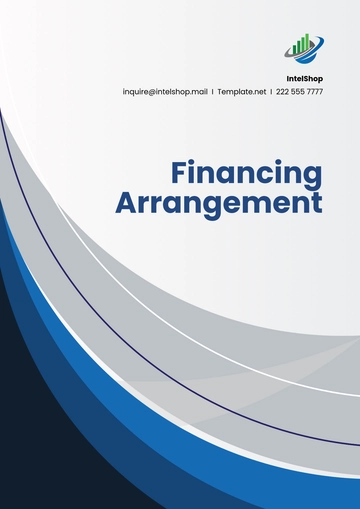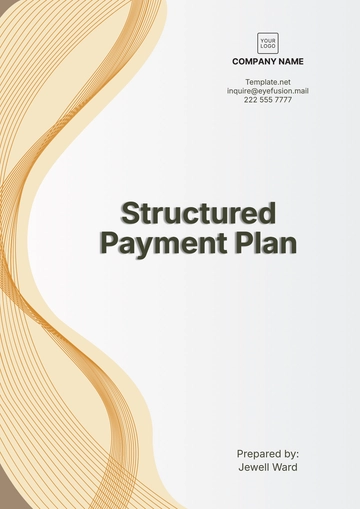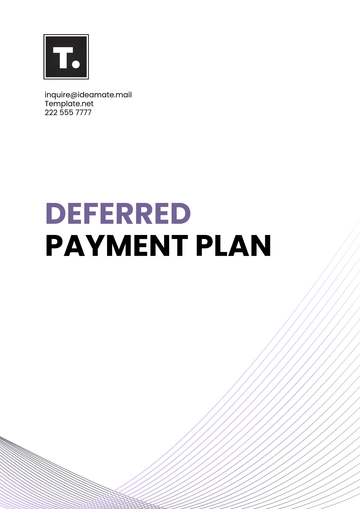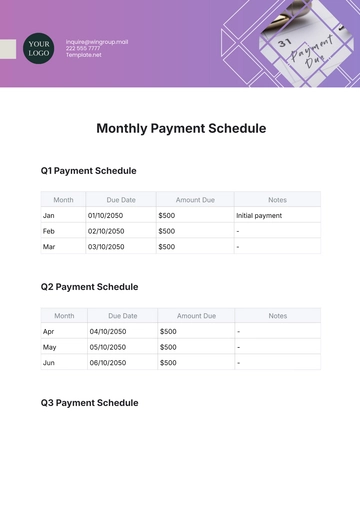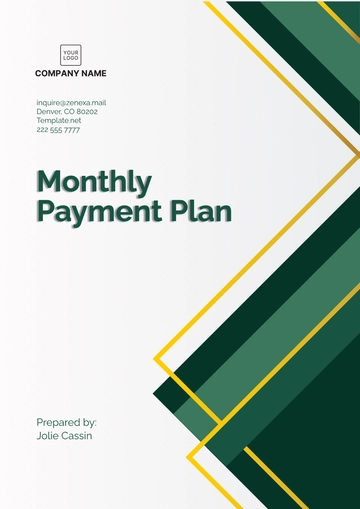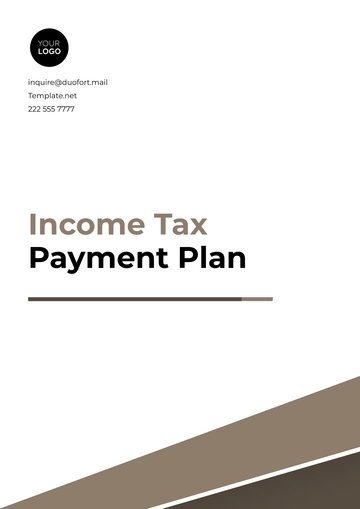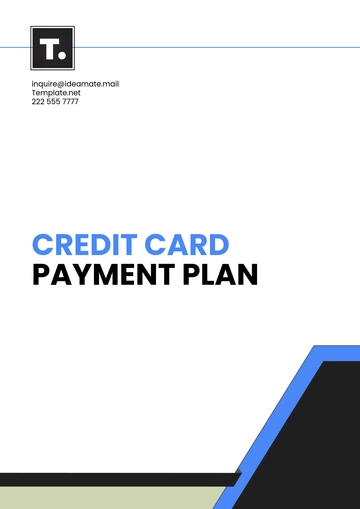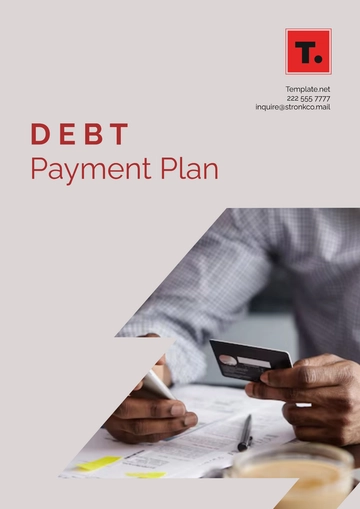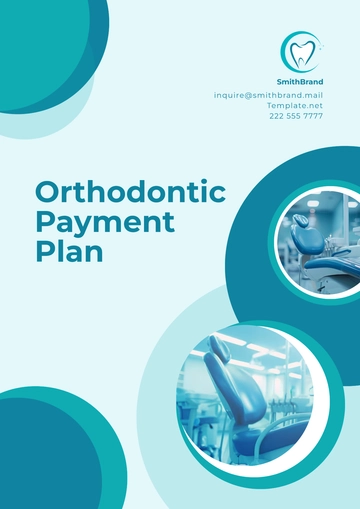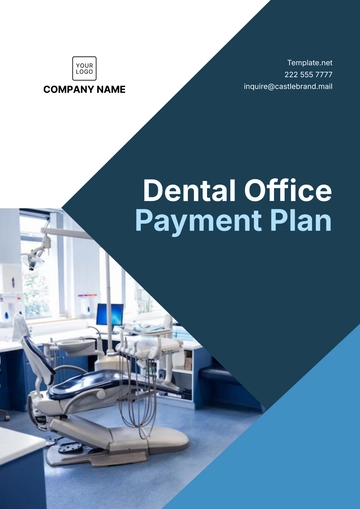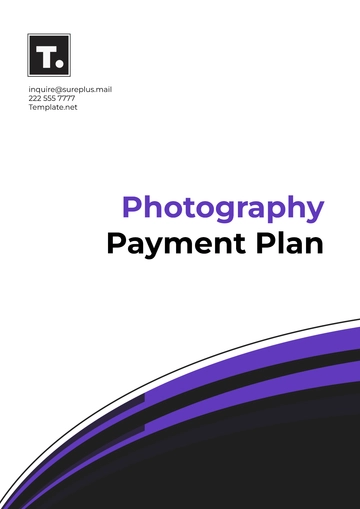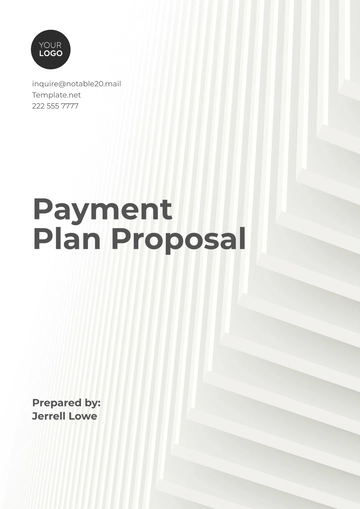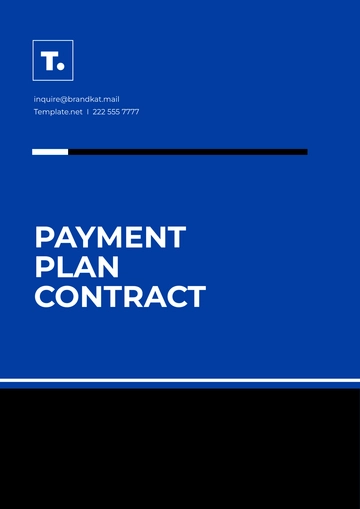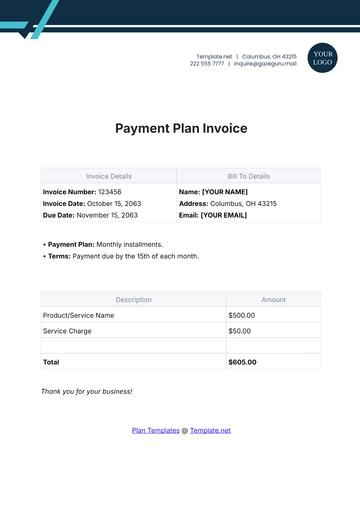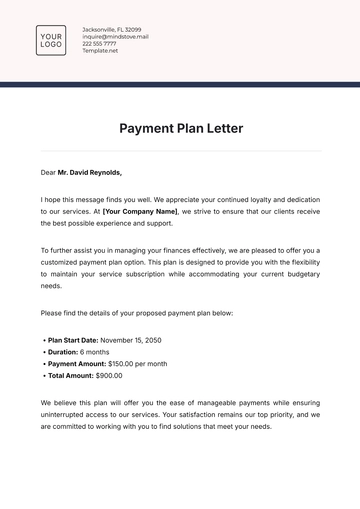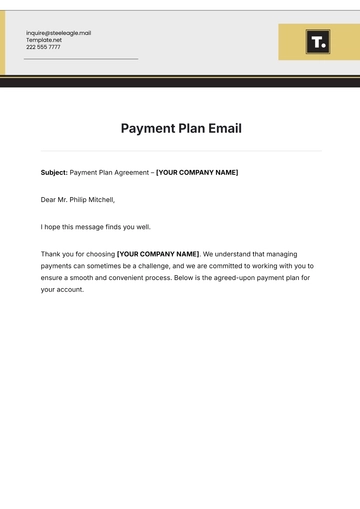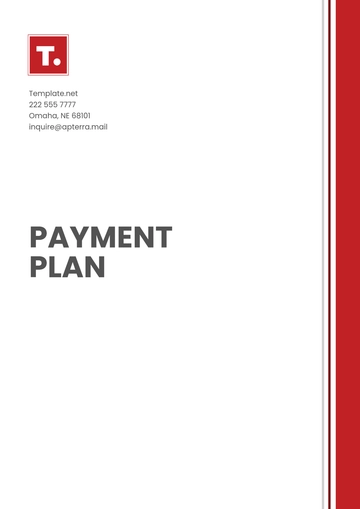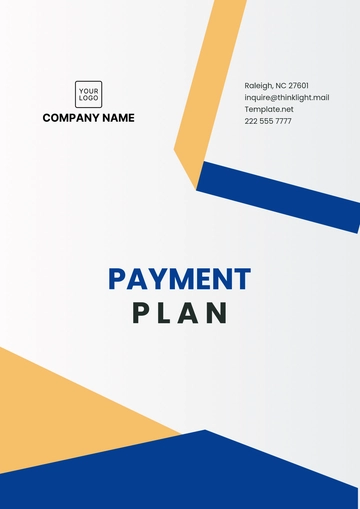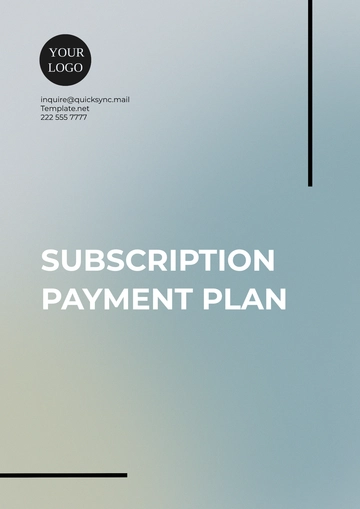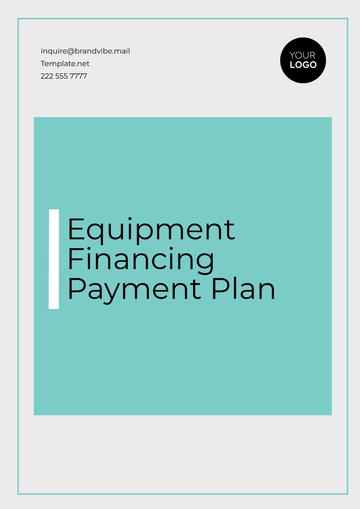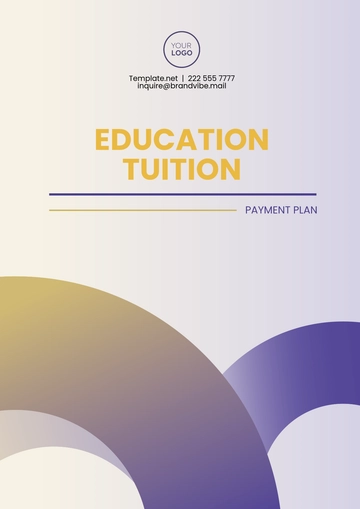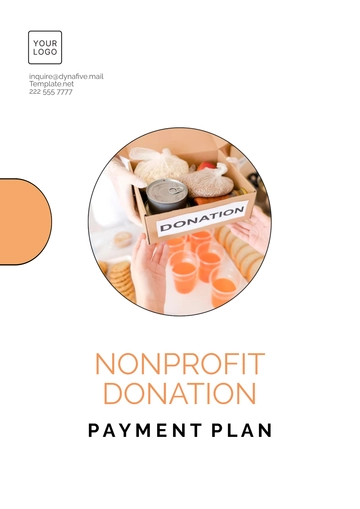Free Child Care Payment Plan
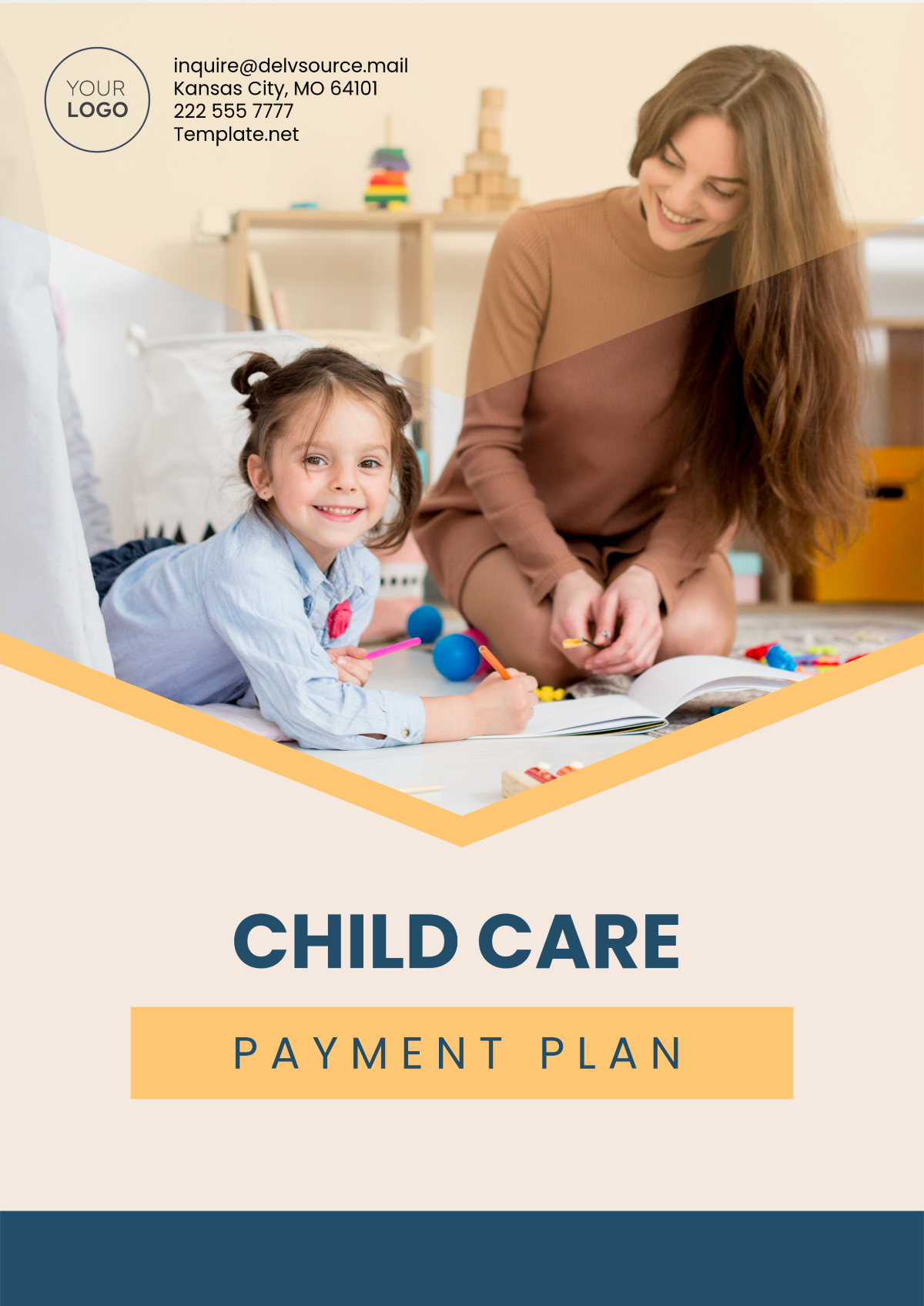
I. Introduction
Managing child care expenses can be challenging for many families. Implementing a structured payment plan helps in budgeting and ensures consistent provision of quality child care. This guide from [YOUR COMPANY NAME] outlines effective strategies for establishing a child care payment plan.
II. Key Components of a Child Care Payment Plan
A. Assessment of Costs
An essential step in creating a payment plan is to assess the total monthly cost of child care. This includes daycare fees, transportation costs, and any additional fees for activities and meals.
B. Sources of Funding
Personal Savings
Government Assistance Programs
Employer Benefits
C. Payment Structures
Select a payment structure that aligns with your financial capability and the child care provider’s terms.
1. Monthly Installments
Pay the fee on a monthly basis, which is the most common approach.
2. Bi-Weekly Payments
Split the monthly fee into two payments, offering flexibility for those aligning payments with paycheck cycles.
III. Strategies for Managing Payment Plans
A. Budgeting
Create a detailed budget that includes a designated section for child care expenses. This ensures that funds are allocated specifically for this purpose.
B. Automation
Set up automatic payments to avoid late fees and ensure timely payments.
C. Communication with Providers
Maintain an open line of communication with child care providers to discuss any potential changes in fees or payment structures.
IV. Monitoring and Adjustments
Regularly review the payment plan to ensure it meets your evolving financial circumstances. Amend the plan as necessary.
V. Conclusion
A well-structured child care payment plan alleviates financial stress and ensures that your child receives consistent care. By assessing costs, identifying funding sources, and adopting effective management strategies, families can successfully manage child care payments.
- 100% Customizable, free editor
- Access 1 Million+ Templates, photo’s & graphics
- Download or share as a template
- Click and replace photos, graphics, text, backgrounds
- Resize, crop, AI write & more
- Access advanced editor
Template.net’s Child Care Payment Plan Template offers a flexible and professional approach to structuring payments for childcare services. Fully customizable and editable in our AI Editor Tool, this template allows childcare providers and parents to create clear agreements outlining payment terms, due dates, and amounts, ensuring smooth financial arrangements for both parties.
You may also like
- Finance Plan
- Construction Plan
- Sales Plan
- Development Plan
- Career Plan
- Budget Plan
- HR Plan
- Education Plan
- Transition Plan
- Work Plan
- Training Plan
- Communication Plan
- Operation Plan
- Health And Safety Plan
- Strategy Plan
- Professional Development Plan
- Advertising Plan
- Risk Management Plan
- Restaurant Plan
- School Plan
- Nursing Home Patient Care Plan
- Nursing Care Plan
- Plan Event
- Startup Plan
- Social Media Plan
- Staffing Plan
- Annual Plan
- Content Plan
- Payment Plan
- Implementation Plan
- Hotel Plan
- Workout Plan
- Accounting Plan
- Campaign Plan
- Essay Plan
- 30 60 90 Day Plan
- Research Plan
- Recruitment Plan
- 90 Day Plan
- Quarterly Plan
- Emergency Plan
- 5 Year Plan
- Gym Plan
- Personal Plan
- IT and Software Plan
- Treatment Plan
- Real Estate Plan
- Law Firm Plan
- Healthcare Plan
- Improvement Plan
- Media Plan
- 5 Year Business Plan
- Learning Plan
- Marketing Campaign Plan
- Travel Agency Plan
- Cleaning Services Plan
- Interior Design Plan
- Performance Plan
- PR Plan
- Birth Plan
- Life Plan
- SEO Plan
- Disaster Recovery Plan
- Continuity Plan
- Launch Plan
- Legal Plan
- Behavior Plan
- Performance Improvement Plan
- Salon Plan
- Security Plan
- Security Management Plan
- Employee Development Plan
- Quality Plan
- Service Improvement Plan
- Growth Plan
- Incident Response Plan
- Basketball Plan
- Emergency Action Plan
- Product Launch Plan
- Spa Plan
- Employee Training Plan
- Data Analysis Plan
- Employee Action Plan
- Territory Plan
- Audit Plan
- Classroom Plan
- Activity Plan
- Parenting Plan
- Care Plan
- Project Execution Plan
- Exercise Plan
- Internship Plan
- Software Development Plan
- Continuous Improvement Plan
- Leave Plan
- 90 Day Sales Plan
- Advertising Agency Plan
- Employee Transition Plan
- Smart Action Plan
- Workplace Safety Plan
- Behavior Change Plan
- Contingency Plan
- Continuity of Operations Plan
- Health Plan
- Quality Control Plan
- Self Plan
- Sports Development Plan
- Change Management Plan
- Ecommerce Plan
- Personal Financial Plan
- Process Improvement Plan
- 30-60-90 Day Sales Plan
- Crisis Management Plan
- Engagement Plan
- Execution Plan
- Pandemic Plan
- Quality Assurance Plan
- Service Continuity Plan
- Agile Project Plan
- Fundraising Plan
- Job Transition Plan
- Asset Maintenance Plan
- Maintenance Plan
- Software Test Plan
- Staff Training and Development Plan
- 3 Year Plan
- Brand Activation Plan
- Release Plan
- Resource Plan
- Risk Mitigation Plan
- Teacher Plan
- 30 60 90 Day Plan for New Manager
- Food Safety Plan
- Food Truck Plan
- Hiring Plan
- Quality Management Plan
- Wellness Plan
- Behavior Intervention Plan
- Bonus Plan
- Investment Plan
- Maternity Leave Plan
- Pandemic Response Plan
- Succession Planning
- Coaching Plan
- Configuration Management Plan
- Remote Work Plan
- Self Care Plan
- Teaching Plan
- 100-Day Plan
- HACCP Plan
- Student Plan
- Sustainability Plan
- 30 60 90 Day Plan for Interview
- Access Plan
- Site Specific Safety Plan

